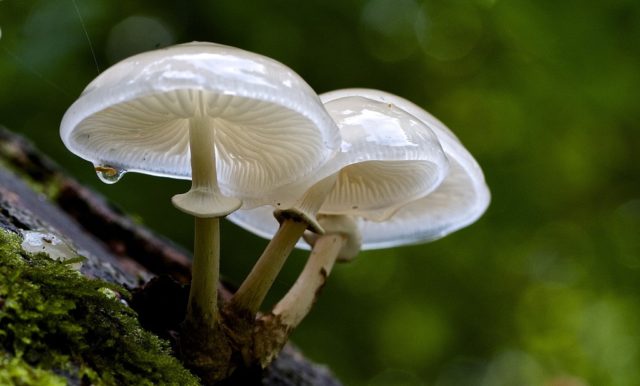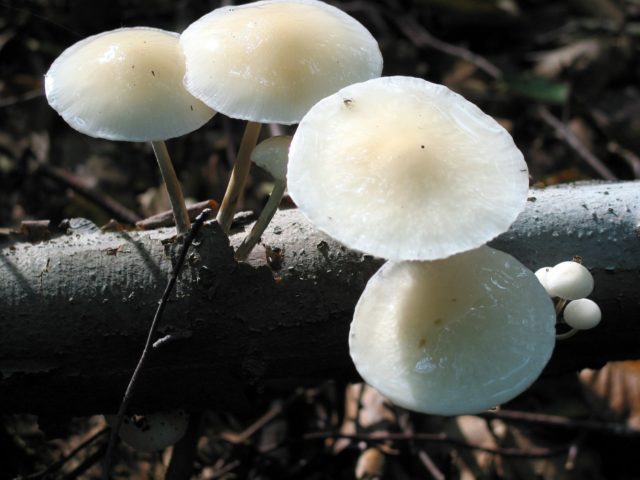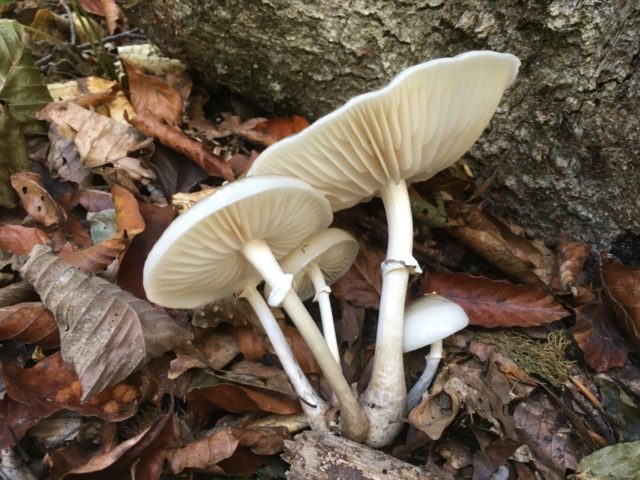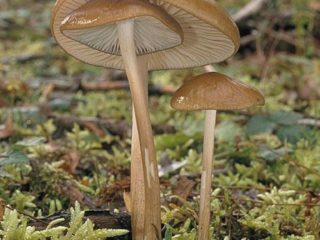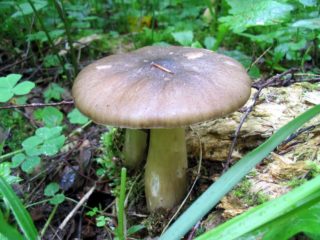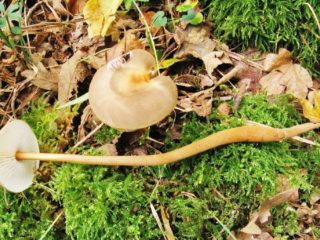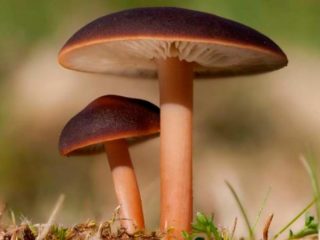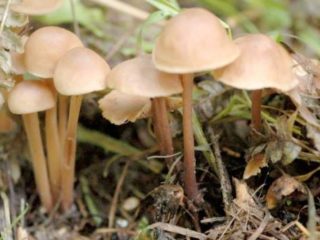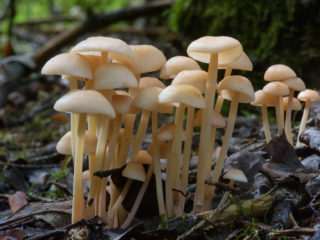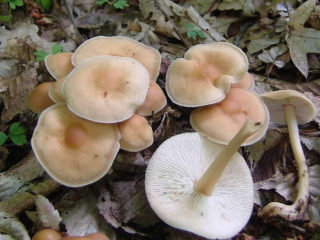Content
Udemansiella mucosa (mucidula mucosa, white mushroom, white mucous honey fungus) is a small tree mushroom belonging to the genus Udemansiella. Distributed in deciduous forests of Europe. There are both single specimens and in clusters of 2–3 specimens of legs fused at the bases.
What does Udemanciella mucosa look like?
This is a beautiful lamellar mushroom with a transparent white or cream color. The main distinguishing feature of Udemansiella mucosa is the presence of mucus on the cap and stalk.It is noteworthy that young specimens have an almost dry surface, which becomes covered with an increasingly thick layer of mucus with age.
Description of the cap
The thin cap has a diameter of 30–90 mm. In the center it is brownish, towards the edges it is pure white, thinning and almost transparent. The young individual has a convex cap of a grayish-cream or grayish-olive hue. With age, it noticeably brightens, acquiring a white color, and becomes more and more flat. The pulp is white, thin. Under the cap, rare wide plates of cream or milky white color are clearly visible.
Description of the leg
It has a straight or curved thin leg 40–60 mm high and 4–7 mm thick. It is fibrous, white, cylindrical in shape, tapering from the base to the cap, smooth, and has a fixed ribbed ring. The ring and the upper part of the stalk are covered with a white coating from spores. The lower part is mucous, the upper part is dry.
Is the mushroom edible or not?
Udemansiella of this species is edible, belongs to category IV, that is, it is suitable for food, but does not have nutritional and culinary value due to the lack of its own taste and poor chemical composition. If consumed as food, it is in a mixture with noble mushroom representatives.
Where and how does it grow
Udemansiella mucosa grows in damp places on dry trunks or stumps of deciduous trees (maple, beech, oak). It can parasitize living weakened trees, but does not cause much harm to them. Most often it grows in clusters, but single specimens can also be found.
This variety is quite common in the world.In Russia, it can be found in the south of Primorye, in the Stavropol forests, and much less often in the central part of Russia.
The emergence season lasts from the second half of summer to mid-autumn.
Doubles and their differences
Recognizing Udemansiella mucosa is not difficult due to its characteristic morphological characteristics (color, shape of the mushroom body, presence of mucus) and growth characteristics. It has no obvious doubles.
Conclusion
Udemanciella mucosa is a common but little-known mushroom, edible, but of little value from a culinary point of view.
